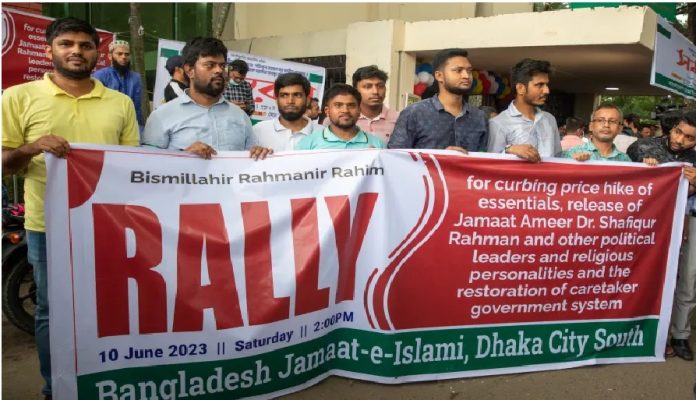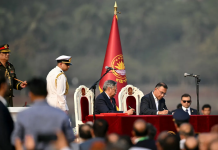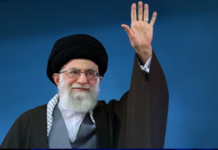DHAKA, Bangladesh.August 28/ALJAZEERA/ — Bangladesh’s interim government, led by Nobel laureate Muhammad Yunus, has lifted a ban on the Jamaat-e-Islami party that was imposed under an antiterrorism law.
The Ministry of Home Affairs on Wednesday revoked the ban on the country’s largest Muslim party, put in place in the last days of former Prime Minister Sheikh Hasina’s administration accusing its members of fomenting unrest during the student uprising that led to her resignation.
A gazette notification issued by the caretaker government said there was “no specific evidence of involvement of Jamaat” and its affiliates “in terrorist activities”.
The party had denied allegations that it stoked violence during the protests, which saw students take a stand against a quota system for government jobs, condemning the ban as “illegal, extrajudicial and unconstitutional”.
Diversion from crackdown
Jamaat-e-Islami, which has millions of supporters, was banned in 2013 from contesting elections after high court judges ruled its charter violated the secular constitution of the Muslim-majority nation of 170 million people.
The party was subsequently excluded from successive elections in 2014, 2018 and in January this year, when 76-year-old Hasina won her fifth term in widely discredited polls without a credible opposition.
Hasina’s government banned the party on August 1, just four days before she was removed from power after weeks of student-led protests, fleeing to India by helicopter.
The secretary-general of the Bangladesh Nationalist Party, had accused Hasina’s government of trying to divert attention from a crackdown by security forces in which more than 600 people were killed, according to United Nations estimates.
Shishir Monir, a lawyer for Jamaat-e-Islami, said the party will file a petition early next week at the Supreme Court to seek restoration of its registration with the Bangladesh Election Commission, so it can go on to contest elections.
Jamaat-e-Islami was founded during British colonial rule in 1941, campaigning against the creation of Bangladesh as an independent state during the war of independence from Pakistan in 1971.
Most of the party’s senior leaders have been hanged or jailed since 2013, convicted of crimes against humanity, including killings, abductions and rapes, committed in 1971.
Bangladesh won independence on December 16, 1971, with the help of neighbouring India.






